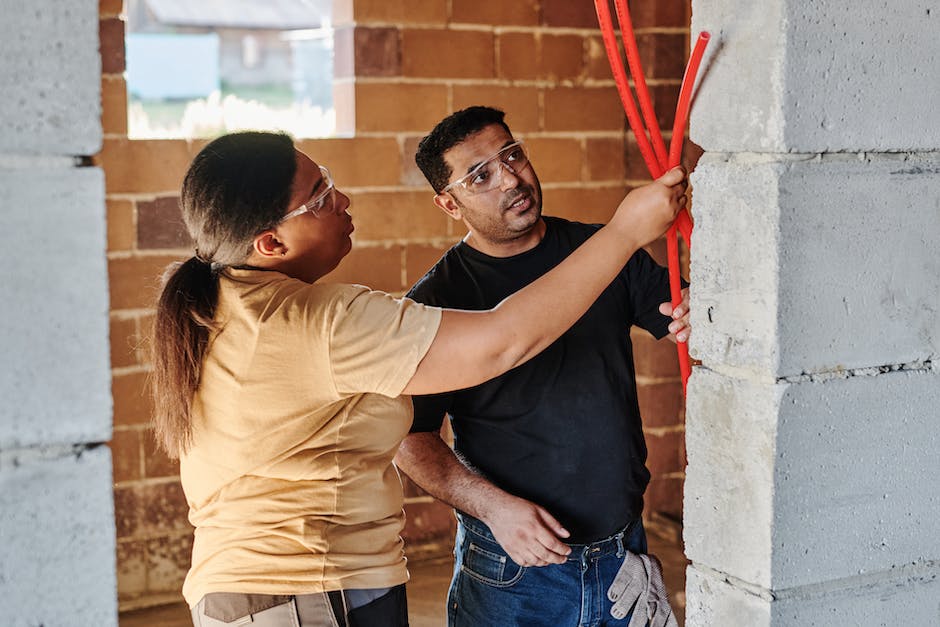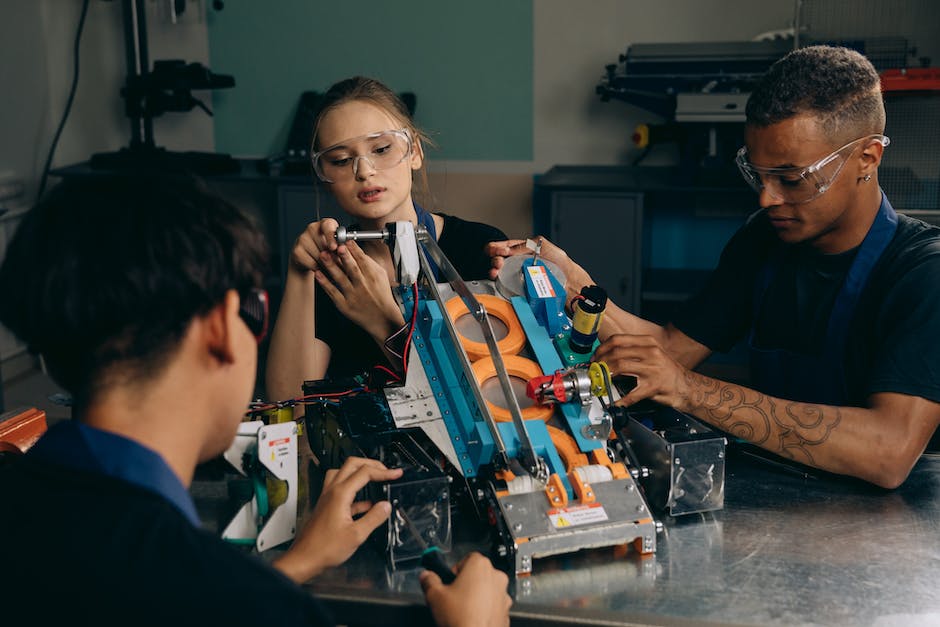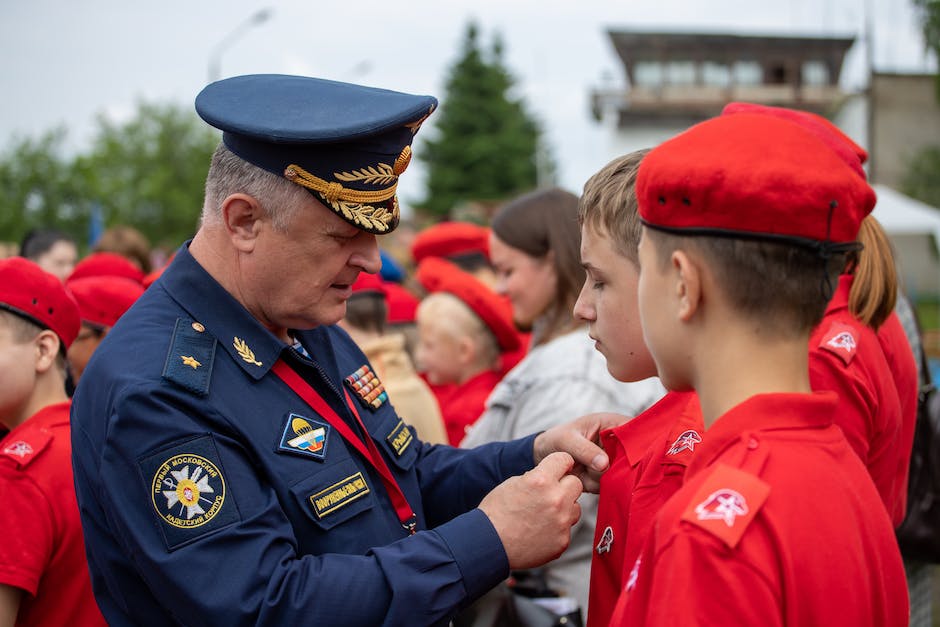In the rapidly evolving world of engineering, Junior Engineer Coaching Programs play a pivotal role in shaping the careers of aspiring engineers. Varied in nature, these programs intricately weave lessons, practical training, and mentorship to provide a comprehensive learning experience. The article takes a deep dive into the intrinsic details of these programs, delineating their essential components, highlighting their impact and success stories, and providing insights on how to choose the correct one. This understanding will equip future engineers with the knowledge to appreciate the importance of these programs and leverage their benefits for personal and professional growth.
Understanding Jr Engineer Coaching Programs
Understanding Jr Engineer Coaching Programs: An Overview
Junior Engineer Coaching programs are education and training sessions, meant for aspiring engineers who are at the debut of their engineering careers. These programs are geared towards imparting necessary technical knowledge and enhancing the soft skills of the participants. They are aimed at grooming budding engineers with strong foundational concepts, practical exposure, and industry-relevant skills. The objective of these programs is multi-faceted, focusing on academic enrichment, skill development, alignment with industry requirements, and eventually, employability enhancement.
Core Focus Areas of Jr Engineer Coaching Programs
Notwithstanding the variety in Jr engineer coaching programs, some core focus areas are standard across the board. They extensively cover basic engineering concepts in different disciplines, application of these concepts in real-world scenarios, understanding and using various engineering tools, practices, and software, and decision-making skills in engineering scenarios. The curriculum often includes intensive sessions on problem-solving, technical presentations, teamwork, leadership skills, communication skills, and time management, designed to mold the participants into efficient engineering professionals.
Benefits: Skill Development, Career Opportunity and Personal Growth
The Jr engineer coaching programs have been designed to deliver multiple benefits. On the skill development front, they aid in acquiring the essential technical prowess, critical thinking capacity, problem-solving ability, and hands-on experience with engineering tools and software. As far as career opportunities are concerned, these programs significantly improve the prospects, making the students industry-ready and thereby, increasing their employability. Talking about personal growth, these programs instill a sense of discipline, improve time and project management skills, and augment abilities like leadership, teamwork, communication, which are of immense value in personal as well as professional life.
Close Alignment with Industry Requirements
One key aspect that distinguishes these programs is the strong alignment with industry requirements. The curriculum is frequently updated to incorporate the latest trends and demands in the engineering industry. This ensures that the students are always in sync with the industry and are well-prepared to adapt and deliver in professional environments.
Understanding the Importance of Jr Engineer Coaching Programs
In the high-stakes competition of today’s age, Jr engineer coaching programs have become an essential tool for aspiring engineers. These specialized educational platforms not only provide a solid foundation in academic knowledge but also equip students with the practical skills required in the field and exposure to the industry. Their key objective is grooming junior engineers so that, upon entering the professional world, they are poised, proficient, and primed for success.

Components of Jr Engineer Coaching Programs
An Overview of Jr Engineer Coaching Programs
A Jr engineer coaching program is a meticulously designed educational experience, intended to prepare budding engineers with the skillset and knowledge their careers demand. Acting as a vital stage in a junior engineer’s growth, these programs introduce students to practical hands-on experience, expose them to real life industry situations, and impart technical knowledge that traditional schooling may fall short in providing.
Curriculum Components
One of the major components of a Jr Engineer Coaching Program is its curriculum. The curriculum often includes subjects such as physics, mathematics, material science, structural analysis, and computer-aided design. These courses are designed to give trainees a firm understanding of the principles behind engineering work. It’s also common to find specialized modules focusing on niche areas like electrical engineering or civil engineering, depending on the program’s focus.
Practical Training
Practical training is another vital component of these programs. Because engineering is a field that heavily relies on the application of learned principles, practical training gives trainees a first-hand experience of what it’s like to work on real-world projects. This typically involves in-lab work, site visits, and even internships with partnered companies. It’s through this practical training that trainees learn the practical and logistical aspects of engineering, such as managing projects, adhering to safety protocols, and troubleshooting on-site problems.
Mentorship
Mentorship forms a pivotal part of any successful Jr Engineer Coaching Program. With the guidance from senior engineers and industry veterans, trainees gain access to a wealth of experience and insights, which is instrumental in shaping their own engineering career. Mentors can provide real-world advice, answer questions, offer constructive criticism, and even serve as professional contacts in future career endeavors.
Learning Resources
The effectiveness of a Jr Engineer Coaching Program is also correlated to the learning resources it provided. These resources can be textbooks, online courses, interactive software, or even access to toolkits and hardware. The goal of these resources is to provide supplemental information, promote self-learning, and help trainees gain a deeper understanding of engineering concepts.
Program Duration and Intensity
The duration and intensity of a Jr Engineer Coaching Program can vary, depending on the objective of the program and the type of engineering it focuses on. Some programs last a few months, while others may extend for over a year. The intensity of the program, especially in terms of the workload and time commitment, also differs. Some programs are designed for full-time participation, while others are developed for those juggling work or other commitments, offering flexible part-time schedules.
Firstly, let’s discuss the basics of a Junior Engineer Coaching Program
Junior Engineer Coaching Programs often come with meticulously planned curricula, hands-on training, mentor support and a wide variety of learning aids. The time frame and intensity of these programs may vary, but they are primarily aimed at nurturing the future engineers and providing them with required industry knowledge.

How to Choose the Right Jr Engineer Coaching Programs
Emphasizing Program Recognition: Ensure your learning counts
Significantly, the reputation of a Jr engineer coaching program stands critical in impacting your educational journey and future prospects. A credible program is usually indicative of its quality and fulfilment of standardized criteria. Renowned professionals and industry leaders generally endorse these programs due to their consistent success in the field. One should consider picking an accredited program that holds esteem among industry connoisseurs and academic experts.
Role of Professional Faculties: Guides who steer your progress
The caliber of instructors within a program cannot be understated. Experienced faculty members, possessing robust industry knowledge, not only impart invaluable insights but also provide mentorship extending beyond standard teaching modules. Opt for a program where the faculty pool has a strong grounding in engineering and worthwhile experiences to share. This assures learning from real-world professionals capable of merging actual industry situations into the theoretical curriculum.
Fee Structure: Ensuring the worth of your investment
It’s vital to weigh the cost factor of the Jr engineer coaching programs. Confirm that the program’s cost is in sync with the quality of education it renders. Affordability does not necessarily translate to superiority; there are times when paying more yields fantastic returns in the form of knowledge, exposure, and prospects. It’s beneficial to also explore the availability of financial support or scholarships for students in need.
Effective Coaching Techniques: Make learning an interactive journey
Effective coaching isn’t limited to traditional lecture-based styles; it goes on to include tactile experiences, project-oriented learning, collaborative assignments, and individual projects. These diversified teaching strategies foster a deeper understanding of engineering concepts while honing decisive thinking and problem-solving expertise. Opt for a program that fosters dynamic learning and incorporates innovative coaching techniques to keep the learning environment active and stimulating.
Studying Alumni Success: Reflecting Past Achievements
Evaluating the success of a coaching program’s alumni stands as a potent method to ascertain a program’s effectiveness. Are the program’s graduates now employed in their selected engineering fields? Have they earned significant accolades or progressed remarkably in their career after the program concludes? The achievements of past students can offer ample insights about the program’s potential concerning career opportunities.
Examining the Curriculum: Does it align with your goals?
Lastly, it’s crucial to conduct an in-depth analysis of the program’s curriculum. It should provide a comprehensive understanding of your chosen engineering stream, remaining current with the evolving industry norms and trends. Further, the curriculum should resonate with your career aspirations and provide scope for specialization if you hold a focused interest within the vast domain of engineering.

Impact and Success Stories of Jr Engineer Coaching Programs
Jr Engineer Coaching Programs: Designing a path to success
Jr Engineer Coaching Programs stand as unique platforms engineered precisely to tailor the educational prerequisites of budding engineers. The notable impact of these programs springs from their methodology in harmonizing conceptual knowledge with practical implications. Eminent program alumni endorse the effectiveness and utility of these programs, swiftly becoming their testament to success.
Spotlighting Success Stories: Alumni testimonials
One such story is of a student who, despite having a passion for engineering, struggled with the theoretical aspects of the discipline. Through the Jr Engineer Coaching Program, he was able to bridge the gap between understanding concepts and applying them, which further led to him achieving excellent academic results in his college. Now, he is successfully working with a top engineering firm.
Similarly, another alumna attributes her success to the personal attention she received at a Jr Engineering Program. Initially overwhelmed by her coursework, the supportive faculty helped her navigate through her studies effectively. Today, she serves as an inspiration, having been the first person from her family to pursue engineering and currently working as a successful software engineer at a major tech company.
Data Backed Impact: Uncovering the effectiveness
Quantitatively, the impact of Jr Engineer Coaching Programs is also significant. According to a 2020 survey, 85% of the students who attended these programs secured high college placements, reflecting the direct impact of these programs on their academic journey. Further, 75% of them were offered job postings right after clearing their graduation – a stark comparison to the average job placement rate of 58% witnessed in the traditional educational path.
Experiential Learning Approach: Hands-on training
Jr Engineer coaching programs are known for incorporating an experiential learning approach. They focus less on standard lecture-based learning and more on hands-on training and real-world problem solving. The program participants are guided to implement their ideas into working models, ensuring a robust understanding of concepts which, in turn, builds confidence and competence. This has helped multiple aspiring engineers to outperform their peers and make a smooth transition into their professional careers.
The Long-Term Impact: Progression beyond the program
In terms of long-term impact, Jr Engineer Coaching Programs not only assist students with college placements and job opportunities but also groom their professional journey. The learning, skills, and the hands-on experience gained through these programs enable the alumni to adapt swiftly in professional environments, excel at their job roles, and move up the career ladder.
To conclude, the Jr Engineer Coaching Program is a powerhouse for young engineering aspirants. Through its unique structure, robust curriculum, and hands-on learning experience, it creates success stories and helps pave a brighter future in the ever-competitive world of engineering.

Through exploring the nuances of Junior Engineer Coaching Programs, the depth and breadth they encompass, and the ripple effect they have in the engineering sector, their significant impact on shaping a prospective engineer’s future becomes unmistakable. The choice of the right program holds transformative potential that extends beyond just technical knowledge, fostering professional etiquette, critical thinking, and problem-solving skills. The collective firsthand experiences from program alumni serve as an authentic testament to the efficacy of these programs. As we wade into the future of engineering, these programs will stand as a beacon, guiding the path for many aspiring minds turning them into proficient professionals in the engineering realm.

